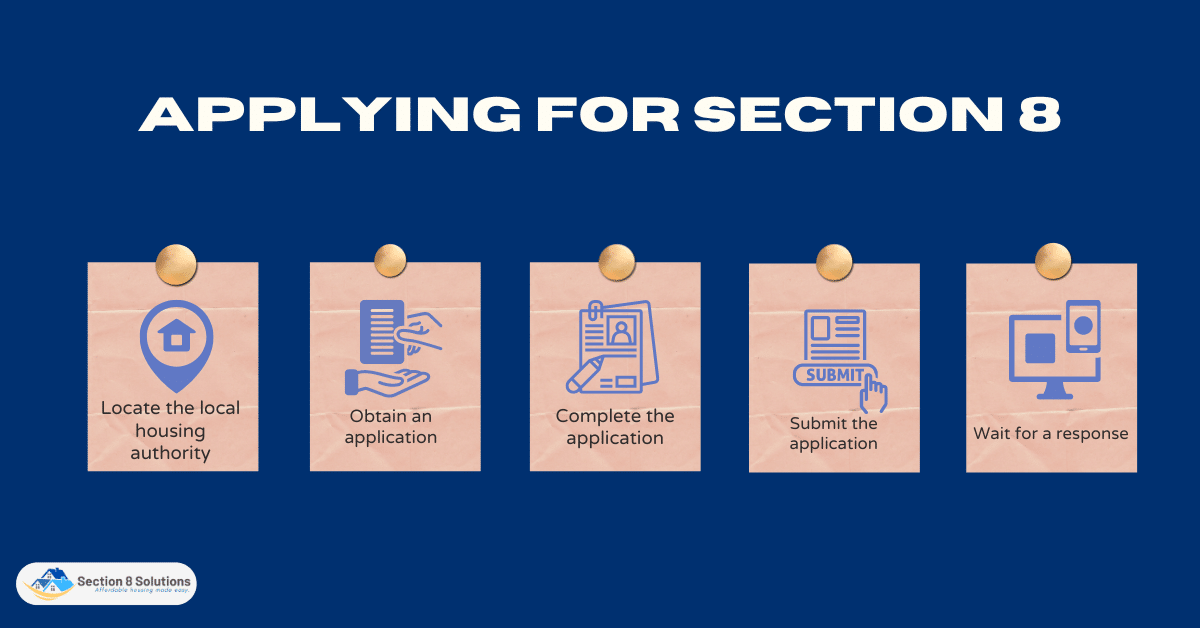Section 8 helps low-income elderly, families, and disabled people afford housing. Colorado Section 8 applicants must meet county-specific income and family size restrictions. The program is administered by the U.S. Department of Housing and Urban Development (HUD).
In this comprehensive guide, we will explore the eligibility requirements for Section 8 in Colorado and provide an overview of how the program works, its benefits, and how to apply.

What Is Section 8?
Section 8 is a federal housing assistance program that provides financial assistance to low-income families, seniors, and individuals with disabilities to help them afford decent, safe, and sanitary housing. The program’s objective is to promote affordable housing and increase access to rental housing for those who may otherwise struggle to afford it.
The Housing and Community Development Act of 1974 created Section 8, which has since evolved. Rental subsidies were initially distributed directly to landlords. In the 1990s, the program switched to a voucher system, where qualifying families and individuals received vouchers to cover part of their rent.
Section 8 assists low-income families, retirees, and disabled people. Housing assistance from Section 8 can free up money for food, healthcare, and education. Affordable housing for eligible people gives stability and security. Section 8 also reduces homelessness and improves health.

How Does Section 8 Work?
The Section 8 program is administered by the U.S. Department of Housing and Urban Development (HUD). HUD provides funding to local Public Housing Agencies (PHAs) to administer the program at the local level.
Section 8 vouchers are tenant-based or project-based. Eligible participants get tenant-based vouchers to rent from program-participating landlords. Project-based vouchers are given to property owners who agree to reserve a specified number of Section 8 apartments.
Tenant-based voucher holders can search for housing on their own or with a housing counselor or case manager. After finding a unit, they must have the landlord fill out an RTA form and submit it to the PHA. HUD’s housing quality criteria will be checked by the PHA, which will negotiate the rent with the landlord.
Section 8 landlords receive PHA-guaranteed rent. The PHA pays the landlord part of the rent, and the participant pays the rest. Participating landlords can offer affordable housing to qualifying families and people while being financially stable.

Income and Family Size Requirements
To be eligible for Section 8 assistance in Colorado, applicants must meet certain income and family size requirements. The income limit for Section 8 varies by county and is based on the area’s median income. For example, in Denver County, the income limit for a family of four in 2023 is $78,000, while in Mesa County, the limit is $66,600.
To determine eligibility, the PHA will calculate an applicant’s total household income, which includes the income of all members of the household, including wages, Social Security benefits, and any other sources of income. The PHA will then compare the household’s income to the area median income for the county in which they live. If the household’s income is below the limit, they may be eligible for Section 8 assistance.

Eligibility for Specific Groups
Section 8 helps low-income families, seniors, and disabled Americans rent. Group qualifying restrictions differ. This section covers family, elder, and disability eligibility. We will also discuss Section 8 benefits for soldiers and their families and domestic abuse victims.
1. Families
Families make up a significant portion of those who receive Section 8 assistance. To be eligible for the program, families must meet the income and family size requirements as discussed earlier. However, there are additional requirements specific to families.
One of the key eligibility requirements for families is that they must have at least one child under the age of 18, or a pregnant woman. This is because Section 8 aims to provide safe and affordable housing for families with children. In some cases, families with children over the age of 18 may also be eligible if the child has a disability.

2. Seniors
Section 8 helps seniors too. Seniors must be 62 or older and meet HUD income requirements to qualify. Seniors may also qualify for specialized housing programs. Section 8 lets elderly stay in their homes while receiving housing assistance. Based on income and family size, seniors may receive a voucher to help pay rent. The voucher allows seniors to rent from a program-participating landlord.
3. Individuals with Disabilities
Section 8 benefits disabled people also. HUD-defined impairments and income standards must be met to qualify for the program.
HUD defines a disability as a physical, mental, or emotional impairment that lasts at least 12 months and significantly limits one or more important living activities. Mobility, vision, hearing, intellectual, mental health, and chronic sickness are examples.
Based on income and family size, Section 8 participants with disabilities may receive a voucher to help pay rent. The voucher allows them to rent from a program-participating landlord.

4. Veterans and Their Families
To be eligible for the VASH program, veterans must meet certain criteria, including being homeless or at risk of homelessness and having served in the U.S. military. They must also meet income requirements established by HUD.
Based on income and family size, VASH vouchers help qualifying veterans and their families pay rent. The voucher allows them to rent from a program-participating landlord. VA case management and supportive services help veterans and their families transition to secure housing and improve their well-being.

5. Victims of Domestic Violence
Victims of domestic violence can apply for Section 8 assistance through the Emergency Housing Voucher (EHV) program. This program provides immediate assistance for those fleeing domestic violence.
To secure Section 8 aid for eligible groups, understanding eligibility standards is crucial. Families, seniors, disabled people, veterans, and domestic abuse victims must meet specific eligibility conditions. Section 8 helps these groups obtain safe, affordable homes by targeting support.

Applying for Section 8
Applying for Section 8 in Colorado requires submitting an application to the local housing authority that serves the county where you live. The application process typically involves the following steps:

- Locate the local housing authority: You can find the local housing authority that serves your area by searching online or contacting the HUD field office in your region.
- Obtain an application: You can download a Section 8 application online or request one from the local housing authority. Some housing authorities may also accept online applications.
- Complete the application: The application will ask for information about your household size, income, and other relevant details. It’s important to provide accurate information and to answer all questions thoroughly.
- Submit the application: You can submit the application in person, by mail, or online, depending on the housing authority’s requirements.
- Wait for a response: After submitting your application, you will receive a confirmation that your application has been received. The housing authority will then review your application and determine your eligibility.
To increase the likelihood that your application will be handled in a timely manner, it is essential to fill out the form in a precise and organized manner.
Conclusion
Finally, Section 8 helps low-income families, retirees, and disabled people in Colorado find housing. HUD and local housing authorities manage it, and applicants must meet income, family size, and other qualifying standards depending on the group. Section 8 vouchers vary, and landlords help participants find affordable housing.
Section 8 applications are lengthy, but the advantages are worth it. It can help struggling families with housing and finances. Readers who may qualify for Section 8 should research and apply. It can benefit them and their family.










